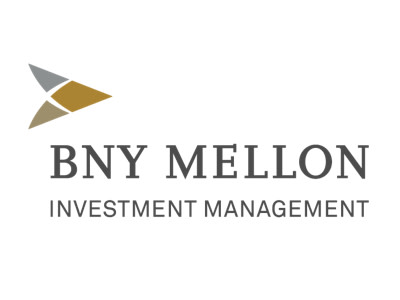James Lydotes and his team hunt around the globe for the best income opportunities
Individual company analysis is coupled with thematic and ESG research
Global income funds, including this one, performed well in 2022 but have since fallen behind funds that are more focussed on growth.
The fund does not currently feature on the Wealth Shortlist of funds chosen by our analysts for their long-term performance potential
How it fits in a portfolio
The BNY Mellon Global Income fund aims to grow income and capital over the longer term by investing in companies from around the world. The fund managers aim to identify the driving forces behind future growth opportunities, such as digitalisation, and then invest in companies they believe can benefit. Typically, they invest more in ‘value’ stocks which means the fund could work well alongside ‘growth’ orientated funds and provide global diversification to an income-focused portfolio.
Manager
This fund has been managed by a team of three since February 2023 with James Lydotes becoming the lead manager after the former Head of Equity Income Ilga Haubelt left the firm. Paul Flood was also a co-manager however, left the team to focus on his new role as Head of Mixed Assets Investment and the multi-asset funds he manages.
Lydotes has been Head of Equity Income since 2023. He has been with BNY Mellon for the majority of his career, joining in 1998 after graduating from Syracuse University. As well as being the lead manager for this fund, Lydotes also manages the global infrastructure fund and small cap euroland fund.
Jon Bell joined Newton, part of BNY Mellon, in 1995 after graduating from Cambridge University and has spent much of his time managing global and multi-asset portfolios. Bell’s time is divided between portfolio management and keeping investors updated on the fund’s activities.
Robert Hay is the final co-manager for the fund. He began his career in the private client investment division at Newton in 2000 and has managed a variety of global equity mandates.
Lydotes has the final decision-making power should a consensus not be found between the three managers. However, the team make use of a large pool of global equity analysts for idea generation and opinions. Given the resources available, we think the managers are able to dedicate sufficient time to this fund.
While the co-managers have lots of experience between them, they have only worked together on this fund for a very short period of time. Even though Bell and Hay have been working in the equity income team since 2020, the level of manager turnover on this fund has been higher than we would typically expect during this time.
Process
The managers believe the best way to achieve long-term growth is through the compounding (reinvesting) of dividends over time. They have a strict buy and sell discipline and any company share considered for the fund must yield at least 25% more than the benchmark – the FTSE World Index. If the yield falls below the benchmark it must be sold.
The team aims to avoid companies with unsustainable yields. As a result, they invest in ‘quality’ companies which have a dominant market position, sensible balance sheets and can generate cash. They must also understand how companies will benefit or struggle to adapt to an ever-evolving society. The managers assess if these businesses are supported by thematic tailwinds like digitalisation and the transition from fossil fuels to green energy.
The companies the managers invest in are broadly split into four buckets of ‘controversy’.
‘Troubled Compounding Machines’ form the foundation of the fund, with 38% invested here. It consists of companies in industries that others can’t easily enter due to legal, geographical, or cost barriers for example. These may be good businesses with growth potential but are hampered by short-term obstacles which the managers are prepared to look past.
‘Ex-growth Cash Generators’ includes companies whose best days of growth might be behind them but are underrated by other investors, even though they can still efficiently generate returns. 22% of the fund is made up of these companies. 10% of the fund is in the third bucket which focuses on ‘Capital Intensity’ and is home to service sector businesses such as banks and insurance firms. Finally, ‘Profitability Transformation’ tends to include more economically sensitive companies and currently makes up 30% of the fund.
Most of the fund is invested in developed markets, with around 44.5% invested in North America and a further 8.9% in France and 7.3% in the UK. It also invests in some higher-risk emerging markets, such as Hong Kong. The fund currently holds 59 names out of the thousands that make up the investable universe.
Over the last 12 months the managers have made a number of changes to the portfolio. They took advantage of market volatility triggered by U.S. President Donald Trump’s “Liberation Day” tariffs to invest in some high-quality companies that, in their view, were oversold.
One such investment was U.S. sportswear giant Nike. Its share price declined after Trump announced significant tariffs on Vietnam, a key manufacturing hub for Nike. The team also added U.S. cosmetics company Estée Lauder, whose share price fell amid escalating trade tensions between the U.S. and China, a major market for its products. Other new additions included UK bank Barclays and U.S. pharmaceutical firm Johnson & Johnson.
On the other hand, the team exited several positions. Unlike in previous years, the primary driver for sales was not due to falling below the portfolio’s yield requirement—typically, around 30% of sales are made for this reason.
Instead, most sales were driven by concerns that companies were becoming too expensive, and the managers believed better opportunities existed elsewhere. For example, they sold U.S. human resources and payroll provider Paychex and consumer goods company Procter & Gamble (P&G) due to elevated valuations. UK drinks company Diageo was also sold, but this decision was based on a deterioration in the investment thesis rather than valuation.
Investors should be aware that charges are taken from capital, which can increase the yield but reduces the potential for capital growth. The managers also have the flexibility to use derivatives, this can increase risk.
Culture
Newton Investment Management is responsible for this fund and operates under the umbrella of BNY Mellon. Equity income investing is an important part of Newton’s business and, alongside this fund’s three co-managers, there are other experienced portfolio managers in the equity team, focused on different regions.
BNY Mellon is a large, US-based firm so the managers have plenty of analysts and resources at their disposal. Until mid-2019 the fund operated under the Newton banner but following a rebrand the fund has since changed to that of the parent company.
We like that the fund managers are incentivised in a way that aligns their interests with those of long-term investors. That said, there have been some significant fund manager departures in recent years, and we hope the current team will provide some stability for investors.
ESG integration
The team at BNY Mellon (formerly Newton) believes responsibly managed companies are better placed to achieve sustainable competitive advantage and provide strong long-term growth. The firm has invested a significant amount of time and resource into its Responsible Investment proposition in recent years, including the hire of Therese Niklasson, the Global Head of Sustainable Investment, who we have long held in high regard.
A dedicated Responsible Investment team exercises the firm’s voting rights, coordinates engagement with investee companies and contributes to public debate on Environmental, Social, and Governance (ESG) matters. The team reports on their engagement progress in their annual Sustainability and Stewardship report, and their ‘Responsible Investment Quarterly Activities’ report (both available on the Newton website). They also offer a voting dashboard, which provides fund-by-fund search functionality and detailed rationales for votes against management and abstentions.
All fund managers have access to a variety of tools, including a “Responsible Investment reviews” app which centralises a variety of research providers’ data, as well as their own, to help identify material ESG and sustainability issues for a single company, and a ‘net zero assessment’ tool assesses credibility of each company’s net zero transition plan. The firm has also launched a Stewardship app, a database which allows the team to better track progress on their engagement objectives, as well as outcomes from their engagement and voting activities.
The firm also runs a responsible range of funds which take ESG analysis further. They utilise the firm’s thematic research framework to identify and exploit responsible investment themes. Within the Responsible investment range, the Responsible Investment team has power of veto over companies held in the portfolios. This means the final decision is separated from the managers and provides an additional layer of challenge.
Although the managers integrate ESG analysis into their investment decisions this fund isn’t specifically an ESG fund.
Cost
The fund is normally available for an annual ongoing charge of 0.81%. We negotiated a 0.24% saving though, so it’s available on the HL platform for 0.57%. Part of the fund discount is achieved through a loyalty bonus, which could be subject to tax if held outside of an ISA or SIPP. The HL platform fee of up to 0.45% per year also applies, except in the HL Junior ISA, where no platform fees apply.
Performance
Since Hay and Bell took over the fund in April 2020 performance has been mixed. During this time the fund has returned 58.34% vs 64.03% for the IA Global Equity Income peer group. Please note past performance isn’t a guide to future returns, this is a relatively short period on which to assess performance. Over the last 12 months the fund has marginally underperformed the IA Global Equity Income peer group. The fund returned 4.24% vs 4.45%.
South Korean technology company Samsung was one of the largest detractors from performance. The company has struggled to keep pace with competitors in supplying semiconductor chips for AI applications. Dutch car manufacturer Stellantis also underperformed, as slowing demand in the U.S. led to a decline in profits. Additionally, the company’s CEO resigned in 2024. Despite these challenges, the team remains confident in Stellantis’s potential to return to growth. U.S. beverage giant PepsiCo also detracted from performance, with concerns that President Donald Trump’s tariffs could disrupt its supply chain and increase costs.
However, there were notable contributors as well. U.S. biopharmaceutical company Gilead Sciences performed strongly, reporting better-than-expected results in 2024 and projecting continued growth into 2025. UK defence company BAE Systems also made a positive contribution. The company is expected to benefit from increased defence spending commitments by European governments, which the managers believe provides a strong runway for future growth.
Many companies had to cut or suspend their dividends in 2020 due to the COVID-19 outbreak, and this means the income the fund paid to investors fell by 10%. The income paid out since has risen and dividend payments in 2024 reached their highest level since the fund’s inception. The fund currently yields 3.07%. Yields and income are not guaranteed and will change over time.
Annual percentage growth
May 2020 - May 2021 | May 2021 - May 2022 | May 2022 - May 2023 | May 2023 - May 2024 | May 2024 - May 2025 | |
|---|---|---|---|---|---|
BNY Mellon Global Income I | 17.70% | 15.22% | 5.86% | 5.82% | 4.24% |
IA Global Equity Income | 26.05% | 8.55% | 3.68% | 10.70% | 4.45% |


